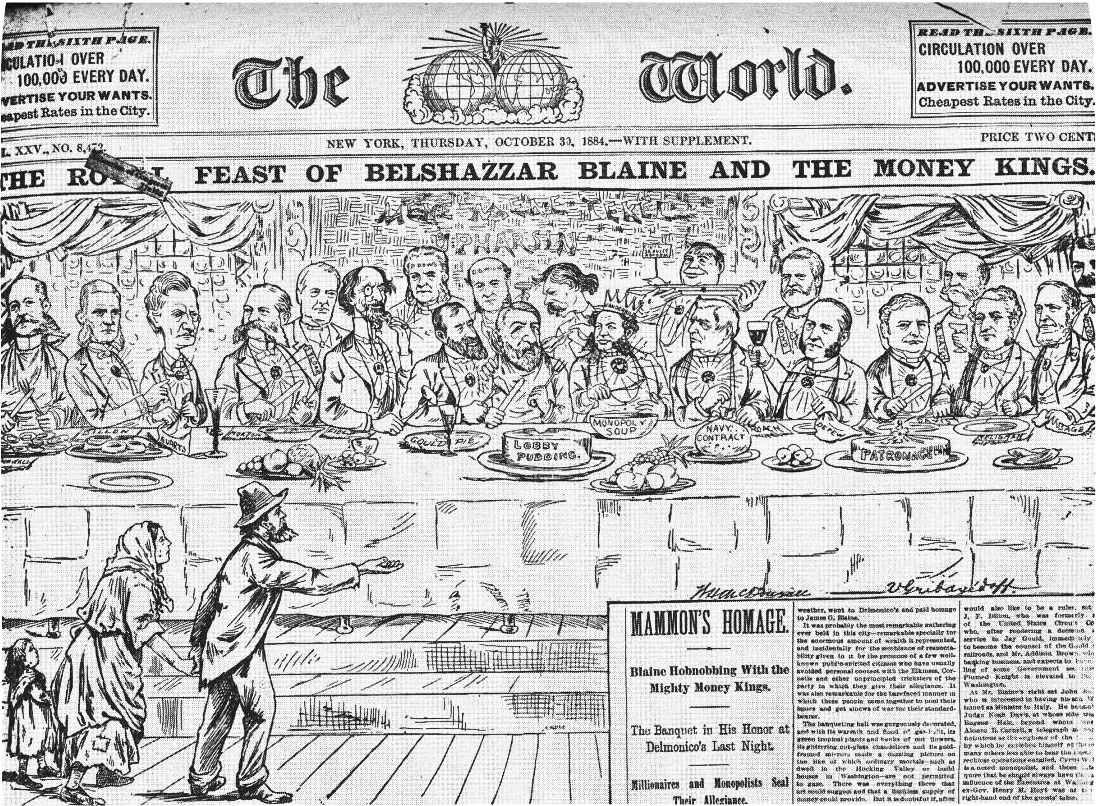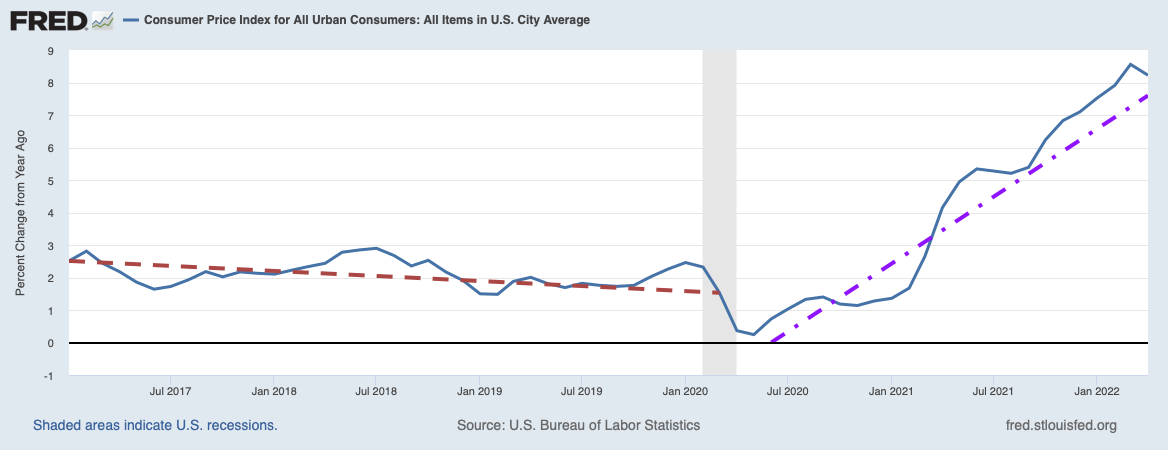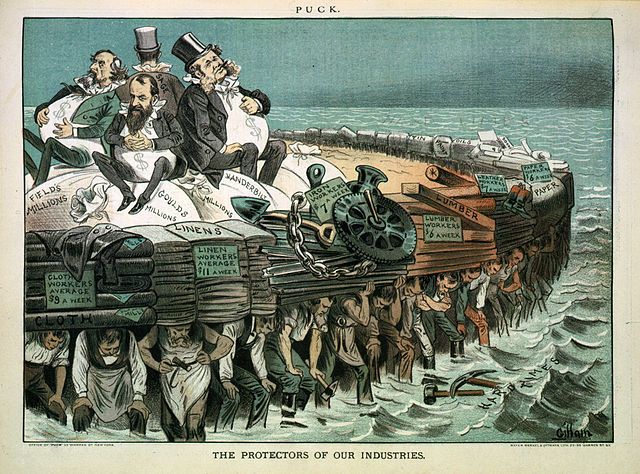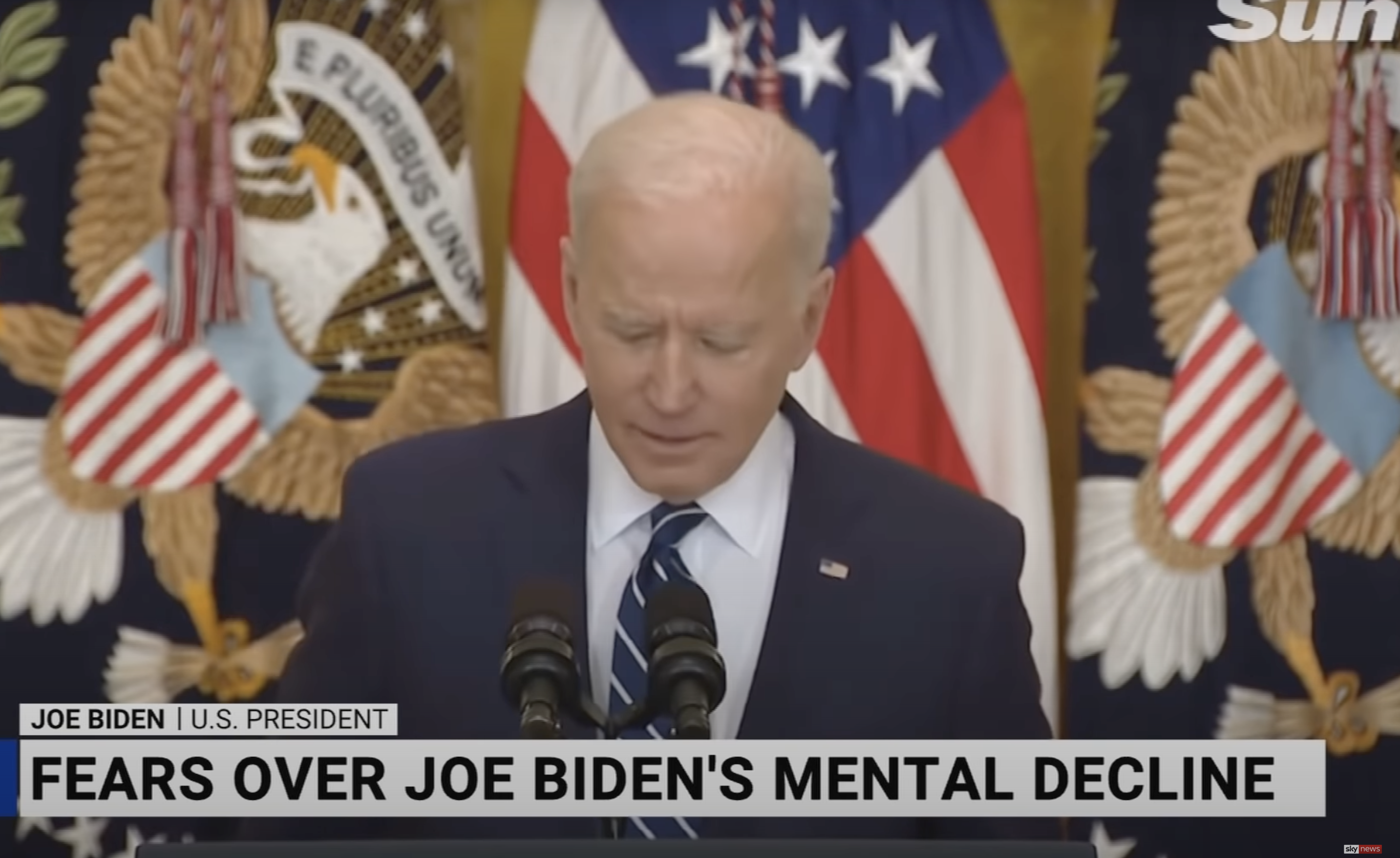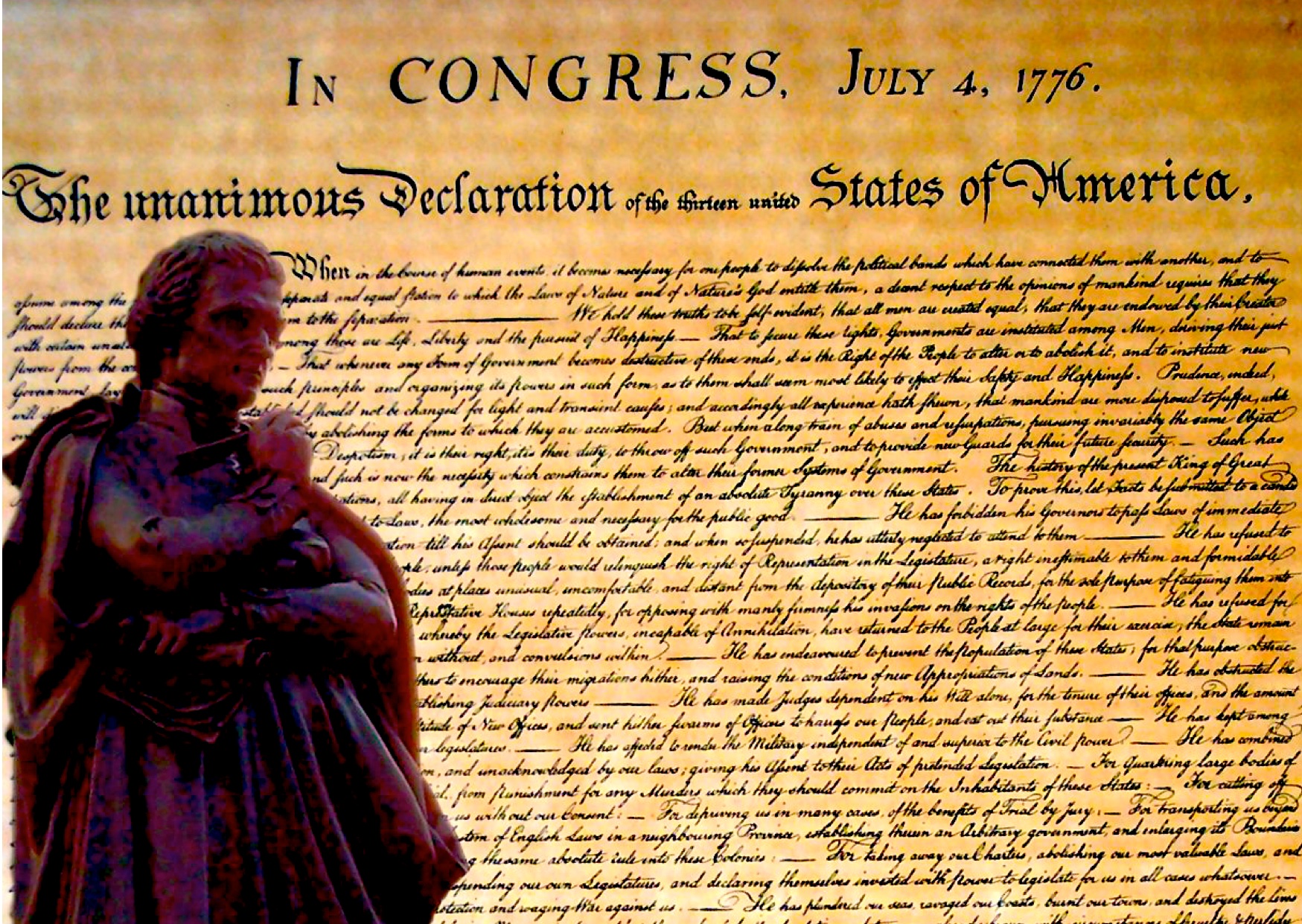A Defense for Democracy and Free-Markets
An Icon of Human Freedom with its Author, Thomas Jefferson
Flickr.com/Drew Myers
It is no secret that American progressives are at the very best terribly ambivalent about democracy, and about democracy’s analogue in economics, a free-market. At their very worst, they are extremely and actively hostile to allowing common men and women be the sovereigns of their own country.
The Progressive Critique of Democracy
I briefly related the history of how progressives gradually changed from being true liberals to being “wannabe” autocrats in the post Progressives Are NOT Liberals. Their greatest motivation seems to be their belief that common people have neither the understanding nor the ability to oppose the power of big business. Their mission then is to gain the reigns of political power as much as they can and to use the coercive power of government to intervene between big business — including their very wealthy owners — and the ordinary citizen. Because the very wealthy have so much more than the average citizen, progressives see it as their duty to take wealth away from the very rich and redistribute it among the ordinary people. For a vivid example of what progressives think about common people, watch the Youtube video below about Jonathan Gruber, President Obama, and Obamacare.
It gets even better in this video!
Surely, the progressive reasoning goes, we can not allow common people to rule their own lives because they are too stupid! Or ignorant, which amounts to the same thing. The modern, university educated technocrat must do all the reasoning for them, and use the coercive power of law to shape reality for the benefit of common people.
The first historical sign progressives were taking an authoritarian direction (also known as the Road to Serfdom) was the administration of Woodrow Wilson. Woodrow Wilson was the first progressive president contemptuous of the U.S. constitution. Instead of the checks and balances of the U.S. Constitution, Wilson wanted the electorate to take the Constitution as a “living”, evolving document. Instead of a Constitution guaranteeing ironclad rights for individuals, Wilson wanted a Constitution constantly evolving the relationship between government and its citizens. Ever since his administration, progressives have enthusiastically embraced this vision of a “living, evolving constitution”. In this point of view, the Constitution possesses all sorts of implied “penumbras” and “emanations” to be discovered by judicial interpretation. This perspective on the Constitution has the advantage for the progressives that it is much easier for a Democratic President to appoint progressive justices to the Supreme Court and judges to the federal judiciary than to go through the mechanics of actually amending the Constitution. During the administration of Franklin Delano Roosevelt, the President went so far as to try to “pack” the Supreme Court (i.e. to increase the number of justices to as many as 15) with justices friendly to his point-of-view. Ever since, progressives have chafed at the constitutional restraints keeping them from doing as they want.
As further evidence for the increasingly authoritarian direction progressives are taking, consider the posts Is Democracy the Best Government? Is It in Danger?, The Anti-Freedom Bias of Progressives and Are You Unconvinced Democrats Are Growing More Authoritarian?
The Reasons Why the Progressives Are Wrong
So how can any believer in a democratic republic and free-markets answer the progressives? We can not say it is because of the innate wisdom of the people, since you would have to admit — no matter whether you are on the Left or on the Right — that sometimes the people show wisdom, and sometimes they are very foolish. No matter whether you are a progressive Democrat or a conservative Republican, you would say the people display wisdom when they elect people from your own party, yet are very foolish when they elect the monsters in the other party! Of course, if you are a progressive, you already have stamped in your political DNA that the people can not be trusted to wisely run their own lives.
How can democracy be defended? Or should we follow the progressives into an ever more authoritarian government? I gave one answer in my last post, The Fermenting of the West’s Discontents: Crises of Ideology. At the very end of that post I wrote
One appreciation everyone should gain from our current ideological struggles is how our troubles are proving the superiority of democratic institutions over authoritarian ones. If Western nations were authoritarian, there would be much blood in the streets by now with civil war. It is in my experience a much misunderstood fact that the justification for democracy is not in the wisdom of the electorate at large, which at any particular time may or may not exist. Instead, that superiority resides in the fact that an unhappy electorate can stage a bloodless coup simply by winning an election. … In addition, civil war in authoritarian states also tends to be quite costly in destroyed and damaged property. Hence the bloodless coup of a democratic election is both more humanitarian and economically efficient.
Yet another justification for democracy is given to us in a post on the Foundation for Economic Education website by Steven Horwitz, The Humble Case for Freedom. First, Horwitz gives us the arguments why democracy and free-markets can not be based on a belief in the sometimes non-existent wisdom of the people. He then considers what would happen if we gave power to those considered (by the electorate, of course!) smart enough to rule the lives of others. He writes:
Even if it’s true that we’re smart enough to run our own lives, doesn’t that suggest that we might be smart enough to run other people’s lives? Historically, the argument for socialism and less comprehensive forms of government intervention was often premised on strong claims about human rationality. If we were smart enough to take control over nature, surely we could do the same with society. …
However, such a false confidence in the powers of reason, what Hayek called “the fatal conceit,” could and did easily slip into power for power’s sake when attempts at rational social planning failed, or turn into the inhumane attempts at social control associated with eugenics in the Progressive Era.
Overestimating human rationality is a recipe for some humans to exercise control over other humans that no human is fit to have.
All right, that is a pretty good reason for not trusting the better-educated progressives to rule our lives in an authoritarian manner. But what is the argument for economic freedom, i.e. for free-markets?
Horwitz’s answer is based on the idea of a social evolution of what is considered the best ways to run our economy, or to solve any other social problem for that matter. I wrote about this idea in the post Adam Smith’s “Invisible Hand” and Evolution. There is a remarkably close analogy between the biological process of evolution and the developments in a free-market, as represented by the metaphor of Adam Smith’s Invisible Hand. As Horwitz emphasized, some of us might not be smart enough to solve our problems, but even so we can look around at other people’s solutions and imitate those that are successful. The analogy with evolution is provided by the following considerations: Genetic mutations of organisms are analogous to economic innovations, while the role of natural selection is provided by the success or failure of that innovation in the market place. As Horwitz writes, “Survival is the standard of success and passing the mutation on through reproduction is the act of imitation [by others in the economy].”
However, for this to work at all, the masters of our government must be smart enough to stay the hell out of the economy to allow the natural selection of Adam Smith’s Invisible Hand to pick winners and losers, rather than the government. The epiphany required of all is that successful economic outcomes are the results of microeconomic events, not macroeconomic policies. Because the economy is a chaotic system, the supply-demand balances needed for any healthy economy can only arise with agreements between individual suppliers and consumers. By looking around at the results of other’s economic decisions, we can learn how to solve our own problems, even if we are not the sharpest tools in the shed! As Horwitz writes in his final sentence, “The case for freedom is what we learn from each other, not what each of us knows.”
Views: 1,603























